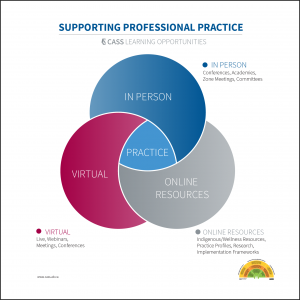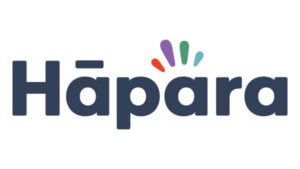← Back to Conferences/Professional Learning
2022 CASS / ASBOA Summer Learning Conference
THIS WEBPAGE IS FOR THE 2022 EVENT.
A new webpage for the 2023 event will be available once the program is finalized.
 HIGHLIGHTS - CASS/ASBOA Summer Learning Conference
HIGHLIGHTS - CASS/ASBOA Summer Learning Conference

Who Should Attend:
Superintendents, Secretary Treasurers and system leaders interested in building their own capacity and as a result others’ capacity. In-depth learning is intended to change practice and positively impact student learning and school authority success.
Details
The CASS/ASBOA Summer Learning Conference will offer the opportunity to attend one of the following Professional Learning Modules:
- Leading Learning (with a focus on supporting implementation of new curriculum)
- Supporting Effective Governance
- Visionary Leadership
- Employment Law
Professional Learning Modules are designed to deepen and apply system education leaders’ professional practice with opportunities to examine Alberta context through an inquiry approach based on research. Learning will be aligned with the SLQS and LQS professional practice standards and/or the ASBOA areas of practice. Learning modules begin with a focus on personal capacity leading to the valuable role system education leaders play in supporting quality school leadership and teaching to create optimum learning for all students in Alberta.
The learning modules will be designed based on the needs of CASS and ASBOA members, and the role they collectively have in leading Alberta school authorities. Many districts choose to attend a professional learning module together (e.g., CASS and ASBOA school authority leadership teams) and others choose to attend different opportunities and build system coherence based on individual learning that occurs. Time for system leadership teams to meet and build school authority plans will be provided.
Module Descriptions
SLQS Competency: Leading Learning – A superintendent establishes and sustains a learning culture in the school community that promotes ongoing critical reflection on practice, shared responsibility for student success, and continuous improvement.
LQS Competencies:
Modelling Commitment to Professional Learning A leader engages in career-long professional learning and ongoing critical reflection to identify opportunities for improving leadership, teaching, and learning.
Providing Instructional Leadership A leader ensures that every student has access to quality teaching and optimum learning experiences.
Leading a Learning Community A leader nurtures and sustains a culture that supports evidence-informed teaching and learning.
Developing Leadership Capacity A leader provides opportunities for members of the school community to develop leadership capacity and to support others in fulfilling their educational roles.
ASBOA Areas of Practice
Human Resource Management – Professional Growth
- Facilitate staff development and training programs through assessments of current knowledge and skills; identifying needs; evaluating the effectiveness of program
- Model appropriate personal and profession opportunities to contribute to personal and professional growth
- Manage the evaluation process through the use of clear and consistent evaluation criteria and providing constructive feedback.
Module Specific Learning Outcomes
Module Overview
Throughout each of the areas of focus described below, participants will be given the opportunity to apply the content from the Learning Module to their own context, focused on supporting implementation of curriculum, to share individual stories of practice, to investigate the Leading Learning Competency( ies) and the perspective of their own context and professional practice standard and to engage in personal growth planning using the CASS and/or ASBOA Practice Profile.
- Providing Instructional Leadership and Leading a Learning Community
- Modeling Commitment to Professional Learning and Developing Leadership Capacity
- Comprehensive Professional Learning and Implementation planning and knowing the impact.
Presented by Helmut Kaiser (Calgary Catholic School District), Jen Lefebvre (Wild Rose School Division) and Terri Reid (Black Gold School Division)
SLQS Competency: Supporting Effective Governance – A superintendent of schools, as referred to in the Education Act, as chief executive officer of the board and chief education officer of the school authority, provides the board with information, advice, and support required for the fulfillment of its governance role, and reports to the Minister on all matters required of the superintendent as identified in the Education Act and other provincial legislation.
ASBOA Areas of Practice
Public Policy and Intergovernmental Relations
- A school business official provides leadership and direction to ensure best practices regarding the political and legislative process as it relates to school board operations.
- Develop, interpret, evaluate and apply policies and roles of all relevant authorities
- Understands the role and influence of special interest groups
- Understand and analyze the political and legislative process as it relates to local school board elections; municipal governments, provincial legislatures and other government jurisdictions
- Use the skills necessary to interpret and evaluate local school board policies and administrative procedures to ensure consistent application in the daily operation of the school district.
Module Specific Learning Outcomes
Participants in the Supporting Effective Governance Module will develop and apply research informed strategies to:
- Understand characteristics of effective governance and why it is important.
- Develop a deeper understanding of research related to Board Governance and its implications for Trustees, Superintendents, Secretary Treasurers and other System Leaders.
- Examine the collective impact the leadership practice of all system leaders, (e.g., ASBOA members, CASS system education leaders focused on the LQS), has on SLQS: Supporting Effective Governance.
Module Overview
Throughout each of the three sessions described below, participants will be given the opportunity to apply the content from the Learning Module to their own context, to share individual stories of practice, to investigate the Supporting Effective Governance Competency from the perspective of their own context and to engage in personal growth planning using the CASS and/or ASBOA Practice Profile.
Session A: Research Overview, Stories of Alberta Practice, Legislation Framework, Governance Models, Canada and Alberta Context
Session B: Dual Role of Alberta Superintendent, CASS organization support, Coherence Making for Mutual Benefit, Valuable Role of Leading from the Middle
Session C: Fostering Collaboration, Politics of Governance, Competency Indicators
Presented by Sandy McDonald (Grande Prairie Public School Division), Jessie Shirley (Grande Prairie & District Catholic Schools) and Bob Stewart (Peace Wapiti Public School Division)
SLQS Competency: Visionary Leadership – A superintendent engages with the school community in implementing a vision of a preferred future for student success, based on common values and beliefs.
LQS Competency: Embodying Visionary Leadership – A leader collaborates with the school community to create and implement a shared vision for student success, engagement, learning and well-being.
ASBOA Areas of Practice
Planning and Evaluation
Strategic Planning
- participate in the development of short and long term goals
- assist with the development and communication of a vision, mission and strategic direction of the district
- assist with the development, implementation, monitoring, reporting and evaluation of a strategic plan
Community Engagement
- Develop processes to implement engagement into the annual planning process of the organization
- Participate in a comprehensive system to target broad community engagement
- Develops plans to review and analyze stakeholders perspective into strategic direction
- Communicate results, findings and future action from community engagement
Module Specific Learning Outcomes
Module Overview
Throughout each of the areas of focus described below, participants will be given the opportunity to apply the content from the Learning Module to their own context, to share individual stories of practice, to investigate the Visionary Leadership Competency from the perspective of their own context and professional practice standard and to engage in personal growth planning using the CASS and/or ASBOA Practice Profile.
- Vision and Detail: More Than Words. This session, led by Dr. Scott Morrison, will focus less on creating a shared vision and more on methods used to achieve that vision. Limiting the scope of an organization’s vision, scaling it division-wide, and taking action to achieve it is a complex task. Moreover, scaling vision across a division requires a focus on the competencies of leading learning and the management of operations and resources. This session will focus on a host of big ideas associated with the visionary leadership competency, supported by short narratives, and coupled with the opportunity for participants to engage in personal reflection about their personal and/or organizational vision.
- Inclusion is a complex and challenging facet of education requiring thoughtful planning and implementation practices. Visionary leadership for inclusive education requires superintendents and system education leaders to apply research to guide best practices, while allowing for contextual factors to guide autonomy at the local level. In this session, participants will engage in an exploration of visionary leadership that addresses the question, “How can a vision for inclusion be developed and supported by an entire school system?” With the needs of diverse learners and their staff in mind, topics such as new curriculum implementation, diversity, equity and inclusion, the continuum of supports and data-informed practices will be explored. This will allow participants to use visionary leadership to ensure that the needs of all learners are considered when setting goals at the system level. This session will be facilitated by Andrea Holowka (Calgary Board of Education), Danica Martin (Wolf Creek Public Schools), Christina Hoover (Golden Hills School Division), Laurie Kardynal (St. Thomas Aquinas Catholic Schools).
- The final session in this module will look at the importance of creation of a clear, easy to remember vision and mission statement. Calgary Catholic School District leaders Bryan Szumlas and Kathleen Kostiuk feel that these foundational phrases are the key for developing Board priorities. This learning opportunity will also provide strategies the district leadership team have used to incorporate the vision, mission and priorities into daily practice so that alignment and coherence within the organization occur. Based on the vision an opportunity to examine and discuss a three year school district plan will occur.
Presented by Dr. Scott Morrison (Christ the Redeemer Catholic Schools), Andrea Holowka (Calgary Board of Education), Danica Martin (Wolf Creek Public Schools), Christina Hoover (Golden Hills School Division), Laurie Kardynal (St. Thomas Aquinas Catholic Schools), Bryan Szumlas and Kathleen Kostuik ( Calgary Catholic School District)
SLQS Competencies
Building Effective Relationships
A superintendent establishes a welcoming, caring, respectful and safe learning environment by building positive and productive relationships with members of the school community and the local community.
School Authority Operations and Resources
A superintendent directs school authority operations and strategically allocates resources in the interests of all students and in alignment with the school authority’s goals and priorities.
Supporting Effective Governance
A superintendent of schools as referred to in the School Act, as chief executive officer of the board and chief education officer of the school authority, provides the board with information, advice and support required for the fulfillment of its governance role, and reports to the Minister on all matters required of the superintendent as identified in the School Act and other provincial legislation.
LQS Competencies
Fostering Effective Relationships
A leader builds positive working relationships with members of the school community and local community.
Managing School Operations and Resources
A leader effectively directs operations and manages resources.
Understanding and Responding to the Larger Societal Context
A leader understands and appropriately responds to the political, social, economic, legal and cultural contexts impacting schools and the school authority.
ASBOA Areas of Practice
Organization and Administration
Legal Issues
A school business official must possess a broad understanding and knowledge of legal issues within the educational context
Human Resources – Labour relations and employment agreements
- Analyze all local and statutory regulations with respect to employment agreements
- Identify and monitor compliance with grievance procedures
- Review provincial regulations with respect to mediation and arbritration
Human Relations
- Develop, interpret and apply personnel policies and procedures
- Identify and implement conflict resolution
- Recognize and promote standards of ethical behaviour and professional conduct
Organization and Administration
Risk Management
To be a leader for implementing best practices related to enterprise risk management ensuring the safeguarding of assets of an organization, both capital and human resources.
Module Specific Learning Outcomes
Module Overview
This learning module will provide CASS and ASBOA members with a foundation to understand human resources law in the education sector. Throughout each of the areas of focus described below, pending available time and participants interest, the opportunity to apply the content from the Learning Module to their own context, to share individual stories of practice and learn from legal counsel stories of practice and to investigate the professional practice standard and to engage in personal growth planning using the CASS and/or ASBOA Practice Profile.
- Workplace Investigations,
- Complex medical leaves,
- Tape recordings,
- How to support other managers that are not principals; role of the supervisor,
- Communication and how communications are produced (texts, emails, etc.…) – relevant and material records are producible in litigation,
- Human rights complaints and arbitrations,
- Powers and duties of Management,
- Employee discipline,
- FOIP and collection, use and destruction of interview notes
Presented by Ed Latka and Tara Malloy (St. Thomas Aquinas Catholic Schools) and Teresa Haykowsky (McLennan Ross)
Conference Resource Materials
Professional Learning Modules
The initial facilitation of professional learning modules was in August 2018 at the CASS/ASBOA conference. CASS Professional Learning Modules, based on SLQS competencies included Visionary Leadership, Leading Learning, First Nations, Metis and Inuit Education, Governance and Building Effective Relationships. The 2019 CASS/ASBOA Summer conference offered members the opportunity to be engaged with Visionary Leadership, Supporting Effective Governance and an Inclusive Education Professional Learning Module, all represented in the participant guide and facilitator slides available at this site. https://cass.ab.ca/professional-learning-modules/
Resource Library – Alberta Stories of Practice Learning Guides
The CASS Resource Library includes “made in Alberta” resources designed for system leaders that will support “pre learning” prior to the annual conference. One example a re CASS learning guides, which are intended to apply research, deepen understanding and enhance professional practice within the Alberta context. Learning guides have summarized CASS “Alberta Stories of Practice” webinars.
re CASS learning guides, which are intended to apply research, deepen understanding and enhance professional practice within the Alberta context. Learning guides have summarized CASS “Alberta Stories of Practice” webinars.
CASS Conference Archives
Missed a recent CASS Learning Opportunity?
The CASS Conference Archives include a list of conference concurrent session recordings and resources, alongside the program. You can find past learning opportunities and resources in the archives. (Thanks to all facilitators for your willingness to share the learning beyond the conference.)
Conference Supporters
GOLD SPONSORS
 Intellimedia LP offers services and solutions that maximize the value of systems and data to power and achieve organizational success. Equipped with extensive knowledge and experience in business process, data management, and integration, Intellimedia helps organizations expand capabilities of existing systems, as well as complements them with customized solutions.
Intellimedia LP offers services and solutions that maximize the value of systems and data to power and achieve organizational success. Equipped with extensive knowledge and experience in business process, data management, and integration, Intellimedia helps organizations expand capabilities of existing systems, as well as complements them with customized solutions.
An Edmonton based Software Company, Intellimedia offers licensed software solutions, technical professional services as well as IT and management consulting to K-12 Schools and School Districts. With a well-established Client base in Alberta and numerous others throughout Canada and all around the world, Intellimedia has become a trusted partner to many School Districts, both large and small scale.
Among our flagship education solutions are Dossier Education Management System, SchoolEngage, and InteliLink all of which help maximize the value of data as well as increase organizational capacity to ease administrative burden.
 Hāpara is a research-based instructional management suite that follows John Hattie’s principles to enable educators to create visible, differentiated and focused learning experiences. For a decade, visionary school divisions in Alberta have partnered with Hāpara on behalf of Alberta teachers and learners. Today, the Alberta Collaboration for Learning (ACL) is an open membership group of school divisions from across the province. The ACL shares their collective professional practice, resources and learning units/lessons that cover the entire K-12 Alberta curriculum, as well as the new K-3 curriculum.
Hāpara is a research-based instructional management suite that follows John Hattie’s principles to enable educators to create visible, differentiated and focused learning experiences. For a decade, visionary school divisions in Alberta have partnered with Hāpara on behalf of Alberta teachers and learners. Today, the Alberta Collaboration for Learning (ACL) is an open membership group of school divisions from across the province. The ACL shares their collective professional practice, resources and learning units/lessons that cover the entire K-12 Alberta curriculum, as well as the new K-3 curriculum.
The results speak for themselves — especially in areas of inter-district collaboration, learner equity and student performance.
Driving equity in Alberta, Canada through the spirit of collaboration
How the Alberta Collaboration for Learning worked together to create more equitable learning environments for all Alberta learners.
Understanding the new Alberta curriculum
Buffalo Trail Public School Innovation Coach, Katrin Heim, shares how to prepare and empower teachers for the new K-3 curriculum.
Creating success for all learners at Wolf Creek Public Schools with Hāpara
A full case study that tracks student achievement data over the course of eight years using Hāpara
If your district may be interested in joining the Alberta Collaboration for Learning, be sure to drop in at the ACL information session Tuesday, Aug. 16 at 4 p.m.
| Goal: |
Participants in the CASS/ASBOA Professional Learning Modules will
|
|---|---|
| Date(s): |
August 15 (evening) - 17, 2022 |
| Location: |
Deerfoot Inn and Conference Centre, 11500 35 St SE #1000, Calgary, AB Conference Rate: $129 Reservations can be made by calling 403-236-7529 or Toll Free: 1-888-875-4667 |
